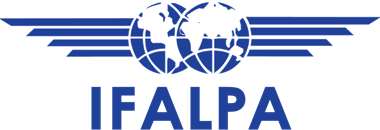MONTREAL - The International Federation of Air Line Pilots’ Associations (IFALPA) was extremely disappointed to learn about the final verdict passed by a Court of the Russian Federation where three Air Traffic Controllers were sentenced to 5, 5 ½ and 6 years imprisonment in the aftermath of the take-off accident of a Unijet Falcon 50 at Moscow-Vnukovo airport on 20 October 2014.
This decision to single out and punish individuals who are already under intense psychological pressure due to an accident will not prevent a similar event from happening again. It is extremely detrimental to flight safety to criminally prosecute individuals involved in aviation accidents, as such prosecutions have the potential to seriously hinder our ability to learn from incidents and accidents so that future mishaps can be prevented.
Further, sentencing these controllers shows a complete disregard for the positive safety culture principles laid out by Annexes 13 (Aircraft Accident and Incident Investigation) and 19 (Safety Management) to the Convention on International Civil Aviation, and for the work of the technical experts who were assigned to this investigation. It may also lead the general public to conclude that the accident resulted from the controllers’ intentional acts, rather than technical issues or a string of simple errors caused by multiple factors.
Pilots, controllers, and other aviation professionals who are directly or indirectly involved in aircraft incidents and accidents are encouraged to provide accurate and complete information to safety investigators so that related safety recommendations can be determined. However, many mistakes that could assist in the prevention of future accidents still go unreported because those involved believe they will not receive fair treatment and are fearful of punitive actions from employers, regulatory authorities, and courts.
Whilst legal repercussions have a place in our society, actions carried out by aviation professionals must always be viewed in the context in which they occurred, taking into account a thorough technical investigation. Detention, sentencing, and punishment will never prevent mistakes or errors from occurring, as mistakes are, by definition, unintentional. If every significant accident automatically leads to criminal prosecution and imprisonment, the lack of incident reporting will only increase, and aviation professionals will no longer be willing to fully cooperate with technical experts and investigators, which will adversely impact the free flow of critical safety information and therefore negatively impact aviation safety as a whole.
In this particular case, it is our belief that the three controllers were not sentenced for causing the accident that resulted in the deaths of those aboard the aircraft, but for failing to prevent the accident with the limited tools they had at their disposal at the time of the event, which were not even properly set up for the airport. There was a clear intent to put the blame on these controllers and treat them as scapegoats, without considering the many other factors that contributed to this tragic accident. This is unacceptable.
IFALPA therefore calls for the immediate release of the three controllers and urges the Russian Federation to adhere to and fully implement ICAO's positive safety culture principles, especially in the wake of an aviation accident.
For more information:
IFALPA Communications, [email protected], +1 514 419 1191
###
Note to Editors: The International Federation of Air Line Pilots’ Associations represents more than 100,000 pilots in nearly 100 countries around the globe. The mission of IFALPA is to promote the highest level of aviation safety worldwide and to be the global advocate of the piloting profession; providing representation, services and support to both our members and the aviation industry. Please visit www.ifalpa.org for more information.
©2020 The International Federation of Air Line Pilots’ Associations. This publication is for information purposes only. This publication may not be offered for sale or used commercially. All reprints must credit IFALPA.
